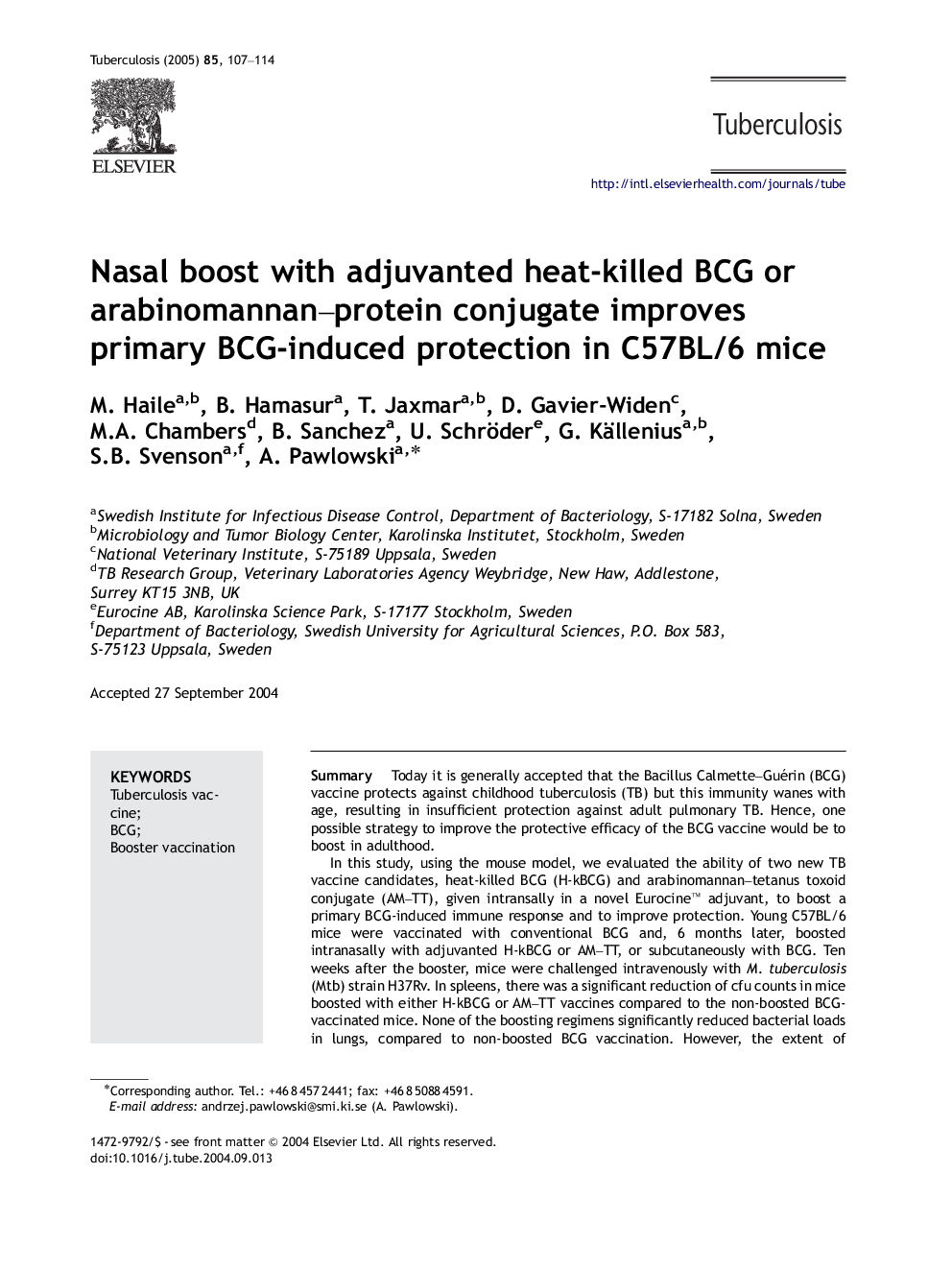| Article ID | Journal | Published Year | Pages | File Type |
|---|---|---|---|---|
| 8969249 | Tuberculosis | 2005 | 8 Pages |
Abstract
In this study, using the mouse model, we evaluated the ability of two new TB vaccine candidates, heat-killed BCG (H-kBCG) and arabinomannan-tetanus toxoid conjugate (AM-TT), given intransally in a novel Eurocine⢠adjuvant, to boost a primary BCG-induced immune response and to improve protection. Young C57BL/6 mice were vaccinated with conventional BCG and, 6 months later, boosted intranasally with adjuvanted H-kBCG or AM-TT, or subcutaneously with BCG. Ten weeks after the booster, mice were challenged intravenously with M. tuberculosis (Mtb) strain H37Rv. In spleens, there was a significant reduction of cfu counts in mice boosted with either H-kBCG or AM-TT vaccines compared to the non-boosted BCG-vaccinated mice. None of the boosting regimens significantly reduced bacterial loads in lungs, compared to non-boosted BCG vaccination. However, the extent of granulomatous inflammation was significantly reduced in the lungs of mice that received two of the booster vaccines (AM-TT and conventional BCG), as compared with sham-vaccinated mice. All boosted groups, except for mice boosted with the AM-TT vaccine, responded with a proliferation of spleen T cells and gamma interferon production comparable to that induced by a single BCG vaccination.
Related Topics
Life Sciences
Immunology and Microbiology
Applied Microbiology and Biotechnology
Authors
M. Haile, B. Hamasur, T. Jaxmar, D. Gavier-Widen, M.A. Chambers, B. Sanchez, U. Schröder, G. Källenius, S.B. Svenson, A. Pawlowski,
